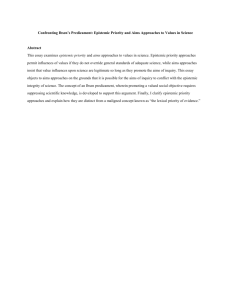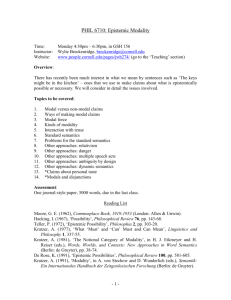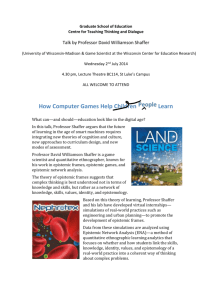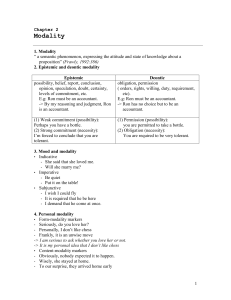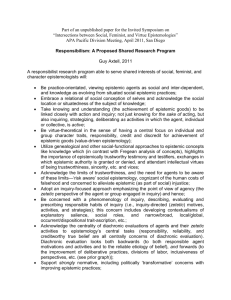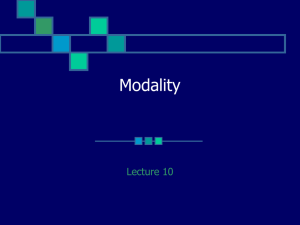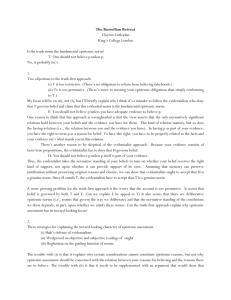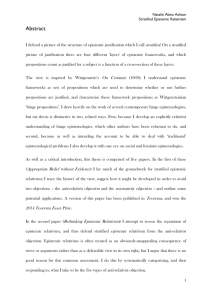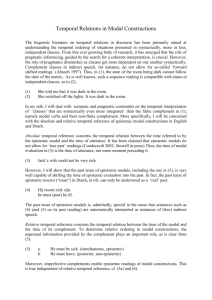TANTÁRGYLEÍRÁS
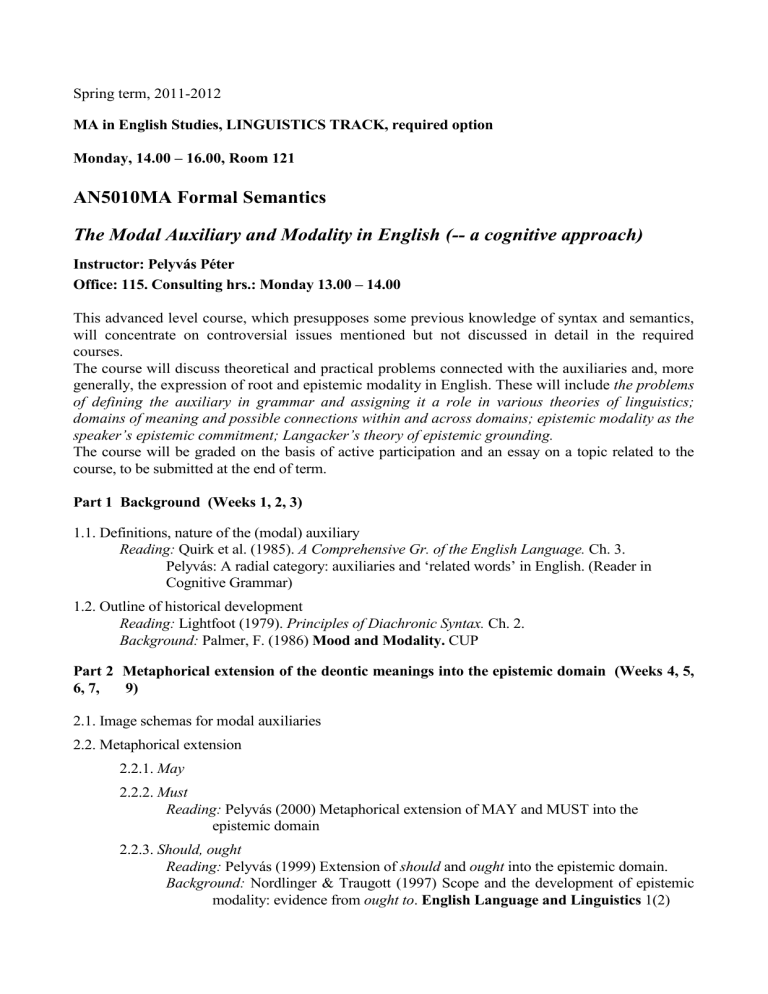
Spring term, 2011-2012
MA in English Studies, LINGUISTICS TRACK, required option
Monday, 14.00 – 16.00, Room 121
AN5010MA Formal Semantics
The Modal Auxiliary and Modality in English (-- a cognitive approach)
Instructor: Pelyvás Péter
Office: 115. Consulting hrs.: Monday 13.00 – 14.00
This advanced level course, which presupposes some previous knowledge of syntax and semantics, will concentrate on controversial issues mentioned but not discussed in detail in the required courses.
The course will discuss theoretical and practical problems connected with the auxiliaries and, more generally, the expression of root and epistemic modality in English. These will include the problems of defining the auxiliary in grammar and assigning it a role in various theories of linguistics; domains of meaning and possible connections within and across domains; epistemic modality as the speaker’s epistemic commitment; Langacker’s theory of epistemic grounding.
The course will be graded on the basis of active participation and an essay on a topic related to the course, to be submitted at the end of term.
Part 1 Background (Weeks 1, 2, 3)
1.1. Definitions, nature of the (modal) auxiliary
Reading: Quirk et al. (1985). A Comprehensive Gr. of the English Language. Ch. 3.
Pelyvás: A radial category: auxiliaries and ‘related words’ in English. (Reader in
Cognitive Grammar)
1.2. Outline of historical development
Reading: Lightfoot (1979). Principles of Diachronic Syntax. Ch. 2.
Background: Palmer, F. (1986) Mood and Modality. CUP
Part 2 Metaphorical extension of the deontic meanings into the epistemic domain (Weeks 4, 5,
6, 7, 9)
2.1. Image schemas for modal auxiliaries
2.2. Metaphorical extension
2.2.1. May
2.2.2. Must
Reading: Pelyvás (2000) Metaphorical extension of MAY and MUST into the epistemic domain
2.2.3. Should, ought
Reading: Pelyvás (1999) Extension of
Background: modality: evidence from should
Nordlinger & Traugott (1997) Scope and the development of epistemic ought to .
and ought into the epistemic domain.
English Language and Linguistics 1(2)
2.3. Deonticity and epistemicity (summary)
Background: Sweetser, Eve (1990) From Etymology to Pragmatics . CUP. Ch.3.
Part 3 Modals and epistemic grounding (Weeks 11, 12)
3.1. Langacker’s system of epistemic grounding
3.2. Inherent problems in Langacker’s system
3.2.1. Deontic vs. epistemic modals
3.2.2. Epistemic modals and cognitive predicates
3.3. A modified version of epistemic grounding
Reading: Pelyvás (1996) Subjectivity in English. P. Lang. Chapters 9, 10.
Background: Langacker (1991) Foundations of Cognitive Grammar II.
Stanford University
Press. Chapter 6.
Background:
Langacker (1987, 1991) Foundations of Cognitive Grammar I, II.
Stanford University Press.
Lightfoot (1979). Principles of Diachronic Syntax. CUP.
Nordlinger & Traugott (1997) Scope and the development of epistemic modality: evidence from ought to . English Language and Linguistics 1(2)
Palmer, F. (1986) Mood and Modality. CUP
Quirk et al. (1985). A Comprehensive Gr. of the English Language.
Sweetser, Eve (1990) From Etymology to Pragmatics . CUP.
Pelyvás Péter

